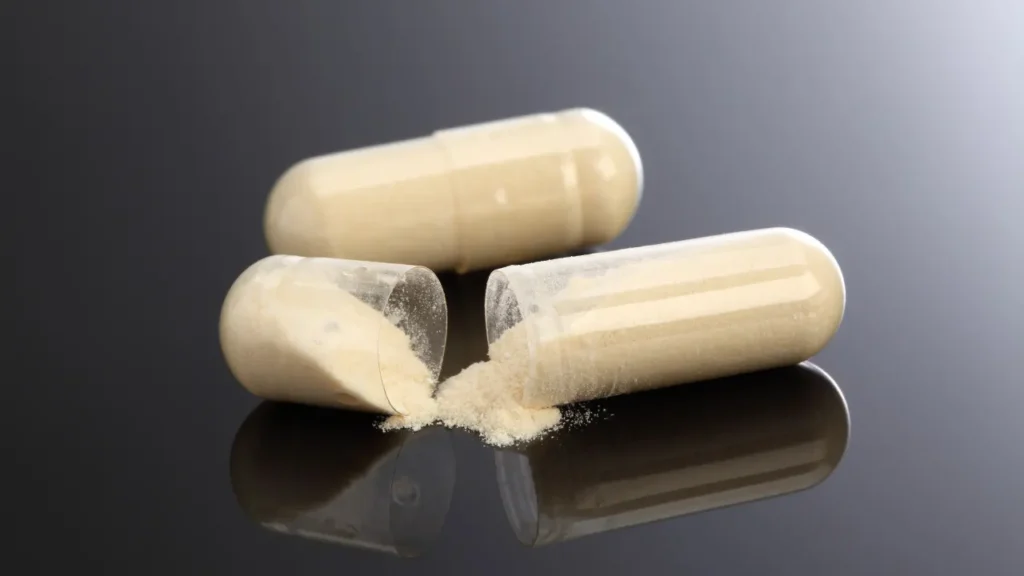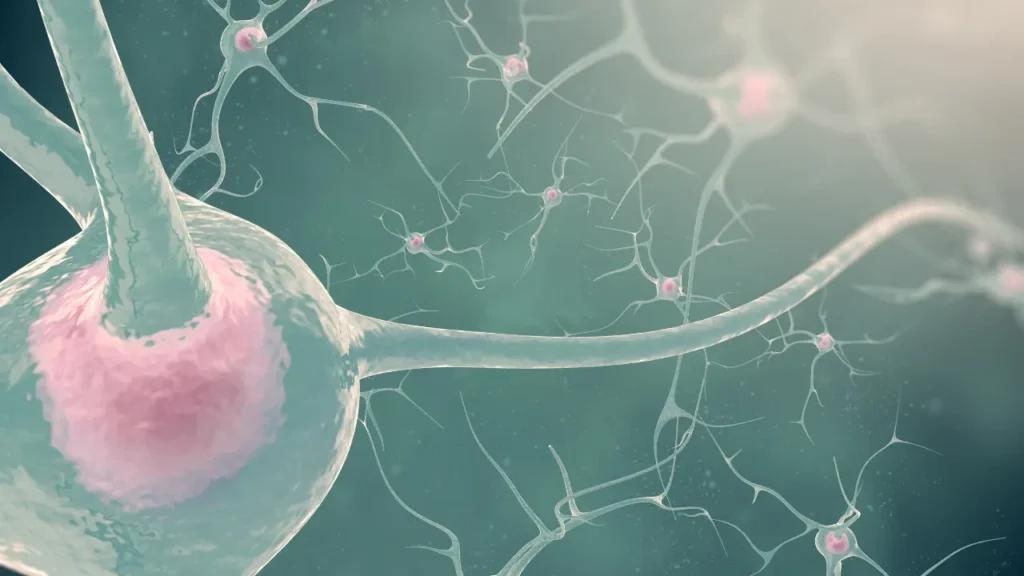A particular class of amino acids called phenylalanine is frequently present in dietary protein sources. It is an essential amino acid because the human body cannot produce it, and it must be obtained from dietary consumption. The neurotransmitters dopamine, norepinephrine, and epinephrine, crucial for mood control, focus, and arousal, are all precursors to phenylalanine. Phenylalanine has grown in popularity as a nootropic supplement for people looking to improve alertness, focus, and cognition because of its possible effects on brain function. This page will cover the characteristics of phenylalanine, as well as the best dosage, possible adverse effects, potential drug interactions, and responsible use.
You May Also Like:
NutriRise Ashwagandha Root Capsules Reviewed: A Leading Herbal Stress Support Product
Smartweed: Benefits, Dosage, Side Effects, Drug Interactions, and Other Important Information
Phenylalanine: Benefits, Dosage, Side Effects, Drug Interactions, And Other Important Information is an original (NootropicsPlanet) article.
Nature of Phenylalanine
The amino acid phenylalanine is categorized as an essential amino acid. It belongs to the group of 20 amino acids that go into making proteins in the human body. Dietary protein sources include meat, fish, eggs, dairy, and soy products, all containing phenylalanine. L-phenylalanine, the amino acid’s natural form, and D-phenylalanine, the synthetic version, are accessible as dietary supplements.
The neurotransmitters dopamine, norepinephrine, and epinephrine are precursors of phenylalanine. These neurotransmitters are crucial for controlling arousal, mood, and attention. Dopamine affects movement, motivation, and attention, as well as the reward and pleasure centers of the brain. Norepinephrine participates in the body’s stress response and controls arousal and attentiveness. Additionally, contributing to the body’s stress reaction, epinephrine helps elevate blood pressure and heart rate.
Health Benefits of Phenylalanine
Among its many possible health advantages are phenylalanine’s impact on mood, cognitive function, and pain alleviation. According to specific research, phenylalanine may assist in elevating mood and lessening depressive symptoms. One study found that phenylalanine supplements significantly improved the mood of depressed subjects.
Additionally beneficial for cognitive function may be phenylalanine. According to one study, healthy people’s memory and concentration significantly improved after taking phenylalanine supplements. Another investigation discovered that phenylalanine supplementation enhanced cognitive function in Parkinson’s disease patients. Additionally, phenylalanine may be helpful as a painkiller. Phenylalanine supplements significantly reduced pain in people with chronic pain disorders, according to one study.

Chemistry of Phenylalanine
The body uses phenylalanine, an essential amino acid, to make several vital substances, including the neurotransmitters dopamine, norepinephrine, and epinephrine. It also serves as a precursor for the amino acid tyrosine, which synthesizes these neurotransmitters. Since phenylalanine has a benzene ring in its chemical structure, it is categorized as an aromatic amino acid. It is one of the 20 amino acids that the body uses to create proteins, and it can be obtained from various foods such as meat, fish, dairy products, some fruits, and vegetables.
Physiological Mechanisms of Action
Dopamine, norepinephrine, and epinephrine are just a few of the crucial neurotransmitters for which phenylalanine is a precursor. These neurotransmitters have many physiological functions, including pain perception, mood management, and cognitive function.
Dopamine is mainly engaged in the brain’s reward system and is frequently linked to motivation and pleasurable experiences. Norepinephrine and epinephrine mediate the body’s stress response, which results in the “fight or flight” reaction to a perceived threat.
Phenylalanine may enhance mood, boost attention and alertness, and lessen pain by raising the amounts of these neurotransmitters in the brain. However, the precise mechanisms of action are unclear, and more study is needed.
It’s crucial to understand that phenylalanine is not a stimulant and doesn’t function like caffeine or other substances that stimulate the central nervous system to boost alertness and focus. Instead, phenylalanine affects these processes by raising the concentrations of neurotransmitters in the brain.
Phenylalanine is a prospective nootropic supplement for people interested in improving their mental performance, even though the precise mechanisms of its actions are not fully understood. Potential effects include mood, cognitive function, and pain relief. As with any supplement, however, responsible use and consultation with a healthcare professional are crucial to ensure safe and efficient use.

Optimal Dosage of Phenylalanine
Several variables influence the ideal phenylalanine dosage, including age, weight, and personal tolerance. The suggested dosage is 500 to 1500 mg of L-phenylalanine daily, split into two or three doses. D-phenylalanine should be taken in 250 to 500 mg daily, divided into two or three doses.
It is crucial to remember that taking more phenylalanine than is advised can result in adverse reactions such as headaches, nausea, and elevated blood pressure. Adhere to the dosage recommendations and get medical advice before beginning a Phenylalanine supplement program.
Side Effects of Phenylalanine
When used in the recommended dosages, phenylalanine is usually regarded as safe. However, going over the advised dosage may have unfavorable effects. Phenylalanine frequently causes headaches, nausea, and elevated blood pressure as side effects. Monoamine oxidase inhibitors (MAOIs), which are prescribed to treat depression and anxiety, may also interact with phenylalanine, raising blood pressure dangerously. If you have a history of high blood pressure or are currently taking any drugs, it’s crucial to speak with a doctor before taking phenylalanine.
People with phenylalanine should also avoid a genetic disease called phenylketonuria (PKU), which alters how the body processes phenylalanine. PKU patients must follow a strict low-phenylalanine diet to avoid negative consequences since they have trouble breaking down phenylalanine.

Potential Substance Interactions with Phenylalanine
Phenylalanine may interact with some medicines, such as MAOIs, causing a risky rise in blood pressure. Levodopa and other Parkinson’s disease treatments may also interact with phenylalanine, which could diminish the medication’s effectiveness. If you have a history of high blood pressure or are currently taking any drugs, it’s crucial to speak with a doctor before taking phenylalanine.
Best Responsible Uses of Phenylalanine
Use phenylalanine carefully because it is a potent nootropic substance. It’s crucial to adhere to the dosage recommendations and get medical advice before beginning a Phenylalanine supplement program. Phenylalanine should be avoided by people with phenylketonuria (PKU) and those using drugs that might interfere with the supplement. Furthermore, exceeding the advised dosage may result in side effects like headaches, nausea, and elevated blood pressure.
Phenylalanine:
Conclusion
Phenylalanine, an essential amino acid crucial for protein synthesis and various physiological processes, offers a spectrum of potential health benefits supported by scientific research and clinical studies. It is a valuable nutritional supplement with potential health benefits for mood regulation, cognitive function, pain management, muscle growth, and weight management. While further research is needed to elucidate its mechanisms of action and clinical applications fully, phenylalanine holds promise as a natural and effective tool for promoting brain health, emotional well-being, physical performance, and overall vitality. As research into its mechanisms of action and clinical applications continues to expand, phenylalanine holds promise as a natural approach to promoting brain health, emotional well-being, and physical performance.

References:
- Phenylalanine: Uses, Side Effects, Interactions, Dosage, and Warning. Link: https://www.webmd.com/vitamins/ai/ingredientmono-653/phenylalanine.
- Phenylalanine: Benefits, Side Effects, Dosage, and Interactions. Link: https://www.healthline.com/nutrition/phenylalanine.
- Phenylalanine: Chemical Structure, Properties, and Benefits. Link: https://www.sciencedirect.com/topics/neuroscience/phenylalanine.
- The effects of phenylalanine on exercise-induced fat oxidation: a preliminary, double-blind, placebo-controlled, crossover trial. Link: https://www.ncbi.nlm.nih.gov/pmc/articles/PMC5596463/
Important Note: The information contained in this article is for general informational purposes only, and should not be construed as health or medical advice, nor is it intended to diagnose, prevent, treat, or cure any disease or health condition. Before embarking on any diet, fitness regimen, or program of nutritional supplementation, it is advisable to consult your healthcare professional in order to determine its safety and probable efficacy in terms of your individual state of health.
Regarding Nutritional Supplements Or Other Non-Prescription Health Products: If any nutritional supplements or other non-prescription health products are mentioned in the foregoing article, any claims or statements made about them have not been evaluated by the U.S. Food and Drug Administration, and such nutritional supplements or other health products are not intended to diagnose, treat, cure, or prevent any disease.


